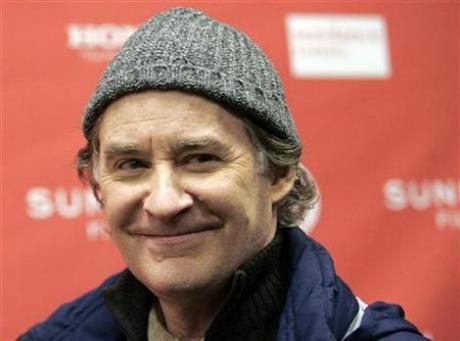


PARK CITY, Utah - "The Extra Man" collects eccentric characters like an antiques dealer collects aging objects.
No one is allowed in this movie unless he is pixilated. This makes for any number of amusing situations, strange lines, nutty ideas and humiliating embarrassments. But this odd collection of oddballs doesn't quite play out as a satisfying movie. Beneath its exaggerated surface is actually a fairly mundane tale of a young man finding himself in the big city.
The film's directors and co-writers, Shari Springer Berman and Robert Pulcini, last appeared at Sundance in 2003 with "American Splendor," which won the Grand Jury Prize in the dramatic competition. Its main character, comic book writer Harvey Pekar, was no slouch as an eccentric either. But in that instance, the filmmakers mined a rich vein of drama, humor and psychological chaos to reveal the source of Pekar's creativity. "Man" misses this kind of scrutiny.
With a cast headed by Kevin Kline and the filmmakers' previous success, "Man" will attract adult audiences in specialty venues. There will be those who will enjoy a film with such gentile craziness. Despite the film's considerable wit, though, it is a disappointment for those who hoped to see the husband-and-wife team deepen their art. The film is just too taken with its eccentricities.
How eccentric, you ask? Well, the hero -- extricated from a novel by Jonathan Ames, who collaborated on the screen adaptation -- is Paul Dano's Louis Ives, a would-be novelist. He compulsively cross-dresses, keeps a running narration of his life in his head as though he were a character in a novel, and acts like a courtly gentlemen of the 1920s.
When Louis moves to New York, after being forced from his teaching position over an episode involving a brassiere, he finds lodging with Kline's Henry Harrison, a man of no discernible employment who collects Christmas balls, disapproves of education for women and in sexual matters finds himself to "the right of the Pope."
The downstairs neighbor, Gershon (John C. Reilly), hides his face behind wild dreadlocks and a huge beard, speaks in a falsetto but sings in a normal voice.
At night, Henry acts as an "extra man," a male escort for elderly, wealthy women, which takes him -- and the movie -- into a social circle of sycophants and dilettantes, none of whom you could accuse of being normal. There also is a hunchback Swiss opportunist (Jason Butler Harner) and a dominatrix (Patti D'Arbanville) who teaches Louis how to do drag, but you get the picture.
In the novel, all these oddballs might have enlivened and deepened the hero's sentimental education. In the film, the Russian Tea Room parties and art openings that widen the circle of eccentrics feel like stalling. They have very little to do with Louis' many issues.
Not that these sidetracks aren't without funny lines and moments. But its people are creatures of fiction; they are exaggerations of human traits and distortions of real obsessions. This also forces many fine actors to play the caricatures, not the characters, in their roles.
There is one normal person here: Katie Holmes' Mary, a fellow employee at Louis' job with an environmental magazine. Louis has a crush on her, but she never seems like a good match for him. Her dogmatic vegan regimen hardly goes with Louis' meat eating, but more to the point she lacks empathy. She can't see beyond the shy young man's oddness.
The film does achieve considerable warmth in the relationship between the old and young eccentrics. If the filmmakers had marginalized the nuttiness and concentrated on the characters, Henry might have helped the young man to discover his identity and voice as a writer. Seems like a missed opportunity.
Dano has a genuinely sweet way of playing shy young men so they don't seem emotionally stunted or weird -- just shy. His F. Scott Fitzgerald moments don't feel like affectations but rather an insistence that manners could and should exist in contemporary society.
Kline and Reilly clearly enjoy playing silliness. These actors have a love for costumes, props and accents. The viewer is always aware of that these are performances, of course. One admires the physicality of their work, but this only distracts from getting to the bottom of why they are the way they are. The hints in the screenplay glide by all too swiftly.
Berman and Pulcini's crew has fashioned a fairy-tale New York out of the real thing. Locations are selected and interiors designed to frame off any grit or hardship.
"Man" is always likable. Indeed, the film works hard to be so. One longs, though, for a glimpse of the humanity behind the shtick and comic gestures. The film just never gets that intimate with its characters.